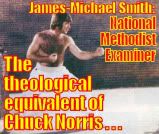In my last post, I talked about Scot McKnight's new book "The Blue Parakeet", which I was reading at the time. I finished it two days ago and wanted to give a follow up.
"Parakeet" devotes the final 3rd of the book to looking at an issue in Scripture which for many readers is a "blue parakeet" issue (one that makes us uncomfortable, challenges us, or seems to go against other passages we read). The issue he chooses is the role of women in teaching and preaching in church settings. I won't recount the entire argument here, but I do want to point out a couple of things he does well, which many in the church--especially us Evangelicals who hold to the Inspiration of Scripture--should take more time thinking through and wrestling with (instead of the usual 'proof-texting' method preferred by many Biblical "experts").
McKnight's main point is that when we look at the Biblical record as a whole--as a story--we see the big picture and how God's moving and ordering history to accomplish His purposes. When we do this, we see that the handful of passages in the New Testament which seem to "silence" women from teaching men run counter to not only the overall plan of God to undo the effects of the Fall through the Gospel, but also to the actual events and roles of women in Scripture itself. As McKnight says, before we ask "What can women do?" (WCWD?), we need to ask "What did women do?" (WDWD?). When we ask the latter question, we find women teaching, preaching, ruling and having authority over men at certain points in both the Old and New Testament (i.e. Miriam, Deborah, Huldah, Junia, Priscilla, Phoebe, etc.). Therefore, when we come to passages in a letter where a New Testament author seems to reverse or condemn such leadership among women, we should probably look a little closer at the actual details surrounding those he is writing to before simply adopting his command to that congregation as universally binding.
I agree with McKnight on this issue (though unlike him, I was never raised with the "traditional" belief that women shouldn't teach or preach to men in the church). Whenever it comes up, I'm always curious as to why the discussion inevitably begins with the prohibitions contained in the later Biblical books (i.e. 1Corinthians, Timothy, etc.) and reads the entire Bible through the lens of those specific prohibitions instead of beginning with the clear passages depicting righteous women in leadership roles of authority over men when called by God to do so and then read the prohibition passages in light of such an overarching pattern.
Of course there are Godly Christians, men and women, who end up coming to differing conclusions about the role of women in spiritual authority positions. And while I don't for a second question their genuine faith, filling of the Spirit, and devotion to Jesus as Lord...I do believe on this issue they have erred in their interpretation of Scripture. For more on this, I recommend picking up a copy of "The Blue Parakeet" and then, listening to both views presented and critiqued by one another in resources such as this or this.
December 15, 2008
Final thoughts on The Blue Parakeet and women preachers...
By
JMS
Subscribe to:
Post Comments (Atom)
JM's Audio Teaching Archive
Check out sermon.net/jmsmith for some of my messages and teaching sessions:








No comments:
Post a Comment